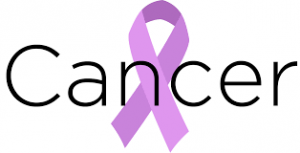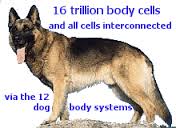
Cancer is a dreaded disease by pet owners and veterinarians alike. Allopathic treatment doesn’t result in a cure, but rather the destruction of a tumor and related cells through radiation, chemotherapy or surgery. These treatments most often cause side effects, which then require additional drug therapy to manage. Conventional cancer treatments most often lead to temporary remission.
Homeopathy on the other hand, offers a gentle approach to cancer, treating not just the lesion or condition, but the patient as a whole-mind, body and soul. General well being is first restored while the cancerous condition is being abated or resolved, and is followed by a return of good health. This article will discuss the principles of homeopathy in the treatment of cancer and why it is a good alternative to the allopathic approach.
 Considering the Whole Body
Considering the Whole Body
The allopathic approach to cancer is to identify the lesion, assess the body systems affected, and then stage the cancer. The homeopathic approach views the patient as one disease, comprised of the totality of symptoms-mental, emotional and physical. Functional changes or lesions, such as fibrosis and tumor growth, are merely one aspect of the patient’s disease.
While allopathic nomenclature may be helpful in understanding a clinical situation, general disease labels are not needed to find accurate prescription in homeopathy since they do not describe what is unique to the individual patient.
For example, lymphoma describes a disease condition, but does not offer any details about the individual case. In order to make the correct homeopathic remedy, the practitioner needs to find out what makes this patient unique.
Once the remedy is determined for that individual, the remedy is administered and the patient’s response is monitored closely. The remedy stimulates the health recovery over the time necessary for the body to repair the damaged tissues. This can take weeks to months, depending on how long the total disease, not just the cancer, has been present. Many individuals do not have the trust or patience for the practice of homeopathy. In this day and age people want instant gratification and results.
Three Possible Outcomes
 Any treatment, whether homeopathic or conventional, can result in three possible outcomes: palliation, supression or cure. It is important to understand how these differ, and how to interpret the patient response to therapy.
Any treatment, whether homeopathic or conventional, can result in three possible outcomes: palliation, supression or cure. It is important to understand how these differ, and how to interpret the patient response to therapy.
1.) Palliation is the most common outcome of allopathic treatment, and it is seen as a rapid response or alleviation of some physical symptoms. A hallmark of palliation is a quick return of symptoms when the treatment is stopped, requiring more frequent repetitions of medicine in higher doses to maintain any improvement.
The benefits of palliation with homeopathy, in cases where a curative remedy cannot be found, is the gentleness of this medicine when compared to the immuno-suppressive doses of predisone often used in allopathic palliation.
2.) Homeopathic practitioner’s view suppression as the worst possible outcome of medicine or surgery. The patient’s well being is not enhanced, and while some symptoms or lesions disappear, there is no improvement of mental and emotional aspects. After a period of time, a new and more severe set of symptoms will result, for example, metastasis to the lungs or heart base following surgical excision of a hemangiosarcoma lesion from the spleen.
 3.) The goal of all homeopathic treatment is to cure the patient by returning the body to health. This is characterized by increased overall well-being, with physiological resistance to disease. The mental/emotional sphere will improve first, followed by the resolution of physical symptoms.
3.) The goal of all homeopathic treatment is to cure the patient by returning the body to health. This is characterized by increased overall well-being, with physiological resistance to disease. The mental/emotional sphere will improve first, followed by the resolution of physical symptoms.
Additional Benefits:
Unlike allopathic treatments for cancer that use multiple drugs at one time, a homeopathic veterinarian will only prescribe a single dose of one remedy. To decide which remedy to use, the homeopath will create a list of the patient’s current symptoms in combination with his entire health history. Therefore, it is possible to have five lymphoma patients all receiving different remedies because their symptom pictures vary, even though allopathic treatment would use the same chemotherapy protocol. One size fits all diagnosis.
Homeopathic treatment aims to cure the patient and have the cancer completely resolve, without causing harmful side effects or requiring repeated medication. In cases where the destruction of the cancer pathology is too advanced to affect a true cure-full restoration of health-it can still provide a gentle approach to alleviating symptoms and improving vitality and quality of life.
Sarah Stieg, DVM, Lisa Melling DVM, CVH and Todd Cooney, DVM, CVH






